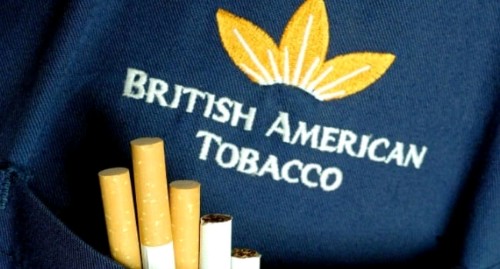The Federal Competition and Consumer Protection Commission (FCCPC) has fined British American Tobacco Nigeria Limited (BATN) and other affiliated companies $110 million for “infractions” of several laws.
In a statement on Wednesday, FCCPC said the affiliated companies are British American Tobacco Marketing (Nigeria) Limited (BATMN), British American Tobacco Plc, and British American Tobacco (Holdings) Limited.
Describing the companies as BAT Parties, the commission said they contravened the FCCPC Act, and the National Tobacco Control Act, among others.
Following an investigation that began on August 28, 2020, the commission said it reached a final resolution with the companies in late 2023.
However, FCCPC did not mention the infractions linked to British American Tobacco Nigeria Limited and its affiliated companies.
FCCPC said it initiated the investigation based on credible intelligence, which called for a broader and deeper inquiry into the companies’ conduct.
Upon satisfying the federal high court that there was probable cause and sufficient evidence to exercise advanced investigatory tools, FCCPC said “the court issued an Order and Warrant of Search and Seizure”.
“In furtherance, and pursuant to the Order and Warrant, the Commission on January 25, 2021 executed simultaneous and contemporaneous searches and seizures at multiple BAT Parties locations and a location of a service provider,” the statement said.
“The Commission gathered, received and procured substantial evidence from forensic analysis of electronic communications and other information/data obtained during the search, as well as other evidence procured during, and after the search from other legitimate sources.
“Additional investigation, including proffers, hearings, transcripts of sworn testimonies, and continuing analysis of evidence established and supported multiple violations of the FCCPA and other enactments.
“During the investigation and in furtherance of mutual engagements between the Commission and BAT Parties, BAT Parties in writing sought, and the Commission accepted BAT Parties into cooperation under the Commission’s Cooperation/Assistance Rules & Procedure, 2021 (CARP).
“The Cooperation/Assistance Framework (CAF) provides for benefits such as possible reduced monetary penalties (Rule 4.1); waiver of the application of the Commission’s Administrative Penalties Regulations 2020 (Rule 4.2); as well as prosecutorial discretion, particularly Rules 5.1 and 5.3 (subject to compliance with Rules 3 and 5.4).”
- BAT PARTIES, FCCPC EXECUTE MUTUAL CONSENT AGREEMENT
According to the commission, it mutually executed a consent order and notice with BAT parties, ending the investigation after considering “the record, evidence, and violations” under the law.
“BAT Parties shall pay a penalty of $110,000,000 (One Hundred and Ten Million Dollars) under and pursuant to Sections 155 of the FCCPA, Clause 11 of the Federal Competition and Consumer Protection Commission’s Administrative Penalties Regulations, 2020 and Clause 4.2 of the Federal Competition and Consumer Protection Commission’s Investigative Cooperation/Assistance Rules and Procedures, 2021,” the commission said.
FCCPC said the order also mandates that BAT Parties are subject to monitoring under its supervision for 24 months to “ensure appropriate business practices modification to be more consistent with compliance with prevailing competition laws/regulations; and tobacco control efforts”.
The commission said the companies would be required to conduct mandatory public health and tobacco control advocacy, compliant with legislation and regulations, to mitigate evidence of undermining national policies.
According to FCCPC, “BAT Parties shall provide Written Assurances to the Commission pursuant to Section 153 of the FCCPA as required”.
“In exchange for BAT Parties fulfilling their obligations under the Consent Order, the Commission withdrew pending criminal charges against BATN and at least one employee with respect to obstructing the Commission by attempting to prevent execution of the search warrant and initial lack of cooperation/compliance with steps in the investigation,” FCCPC said.
The commission expressed commitment to its mandate of promoting and ensuring fair markets and protecting consumer interests.
Credit: The Cable

 BIG STORY2 days ago
BIG STORY2 days ago
 BIG STORY5 days ago
BIG STORY5 days ago
 BIG STORY4 days ago
BIG STORY4 days ago
 BIG STORY15 hours ago
BIG STORY15 hours ago
 BIG STORY4 days ago
BIG STORY4 days ago
 BIG STORY3 days ago
BIG STORY3 days ago
 BIG STORY3 days ago
BIG STORY3 days ago
 BIG STORY4 days ago
BIG STORY4 days ago






















